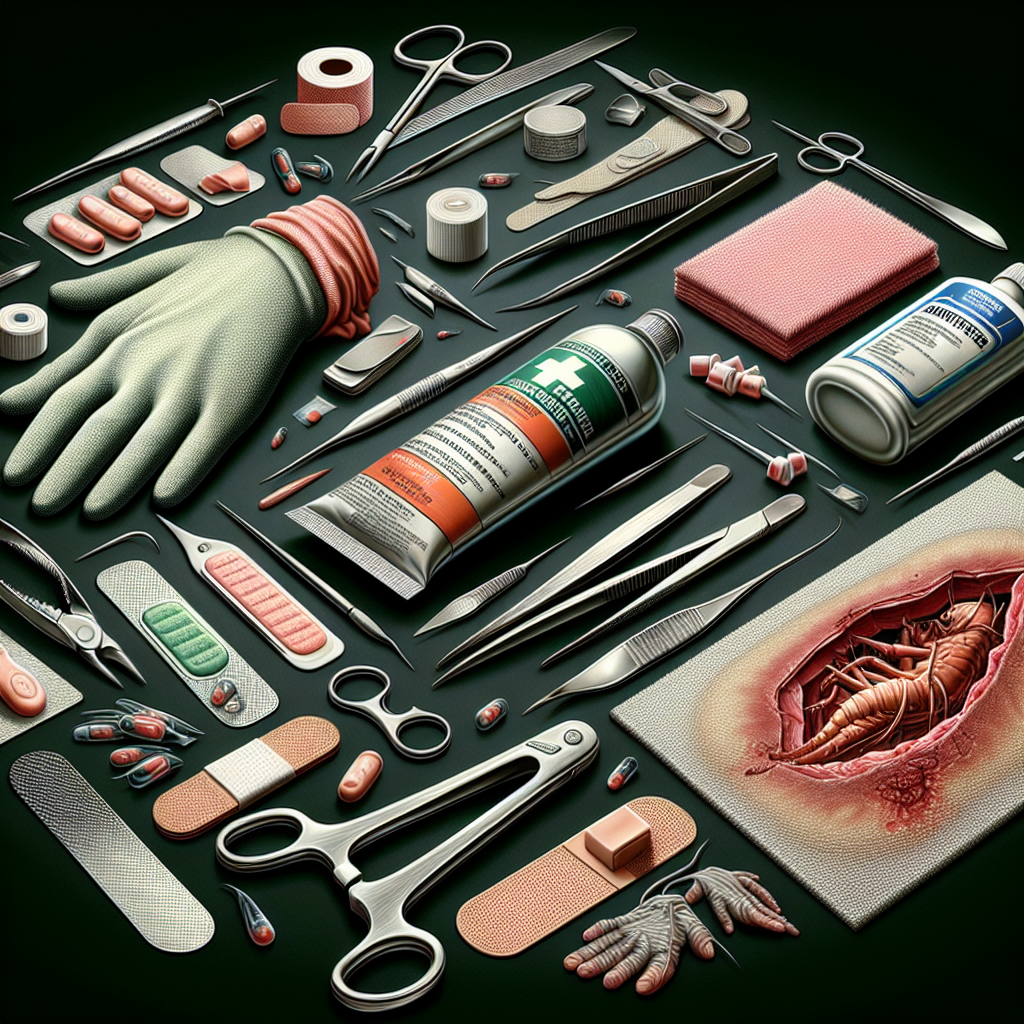Introduction
Imagine you’ve accidentally nicked yourself while preparing dinner or during a DIY project. Initially, it seems like a small inconvenience, but after a few days, you notice redness, swelling, and even some pus around the wound. This is a common scenario for many people, and knowing how to properly treat a minor infected cut can make a world of difference in preventing further complications and promoting faster healing.
- Signs of Infection
- Step-by-Step Treatment Guide
- When to Seek Medical Help
- Preventive Measures
- Key Takeaways
- FAQ
Signs of Infection
An infection typically presents itself with clear signs that your body is fighting off intruding bacteria. Recognizing these symptoms early can help you take timely action. Look out for:
- Redness: The area around the cut appears more red than usual.
- Swelling: The tissue around the wound starts to swell.
- Pain: Increased pain that might throb.
- Heat: The infected area feels warmer than the surrounding skin.
- Pus: Yellow or green discharge oozing from the cut.
Step-by-Step Treatment Guide
1. Clean the Wound
First and foremost, clean the wound thoroughly. Use mild soap and water to gently cleanse the area. Avoid using hydrogen peroxide as it can damage healthy tissue. Instead, opt for saline solution or an antiseptic wash.
2. Apply an Antibiotic Ointment
Once the wound is clean, apply a thin layer of antibiotic ointment such as Neosporin. This helps kill bacteria and keeps the wound moist, promoting faster healing.
3. Cover the Cut
Use a sterile bandage or gauze to cover the wound. This not only keeps it clean but also prevents any dirt or bacteria from entering. Change the bandage daily or whenever it becomes wet or dirty.
4. Keep an Eye on Progress
Monitor the cut daily for signs of improvement or worsening. If the infection seems to be spreading or if symptoms persist beyond a few days, it might be time to seek professional medical help.
When to Seek Medical Help
If at any point you experience severe symptoms such as fever, increased redness, or if the wound develops red streaks extending from it, seek medical attention immediately. These could be signs of a more serious infection requiring professional care.
Preventive Measures
The best way to handle an infected cut is to prevent it from becoming infected in the first place. Here are some preventive measures:
- Keep It Clean: Regularly clean cuts and scrapes with soap and water.
- Avoid Touching: Resist touching the wound with unwashed hands.
- Stay Covered: Keep wounds covered with a sterile bandage until they fully heal.
- Moisturize: Use antibiotic ointments to keep the area moist and bacteria-free.
Key Takeaways
- Recognize early signs of infection such as redness, swelling, pain, heat, and pus.
- Follow a proper cleaning routine using mild soap and water or antiseptic washes.
- Apply antibiotic ointment and cover the wound with a sterile bandage.
- Monitor the wound’s progress and seek medical attention if symptoms worsen.
- Practice preventive measures to avoid infections in the future.
FAQ
Can I use hydrogen peroxide on my infected cut?
No, using hydrogen peroxide can harm healthy tissue and delay healing. Opt for saline solution or an antiseptic wash instead. For more detailed information, check out our post on why hydrogen peroxide is no longer recommended.
How often should I change the bandage?
You should change the bandage daily or whenever it becomes wet or dirty to maintain cleanliness and prevent further infection.
When should I see a doctor?
If you notice severe symptoms like fever, increased redness, or red streaks extending from the wound, seek medical attention immediately. For more guidance on when to seek urgent care services, visit our patient services page.
Conclusion
Treating a minor infected cut involves understanding the signs of infection, following a proper cleaning routine, and taking preventive measures seriously. By doing so, you can ensure quicker healing and avoid more serious complications. Always remember, when in doubt, consult a healthcare professional to get appropriate care. For more information on injury treatments, you can explore our comprehensive guide on minor injury treatment.
Your health and safety are paramount. Stay vigilant and proactive in caring for your wounds to lead a healthier life!
For additional resources and expert advice on various urgent care services, visit our urgent care services page.
If you want localized care options, check out our services in areas like Willowbrook, Burr Ridge, and Hinsdale.











